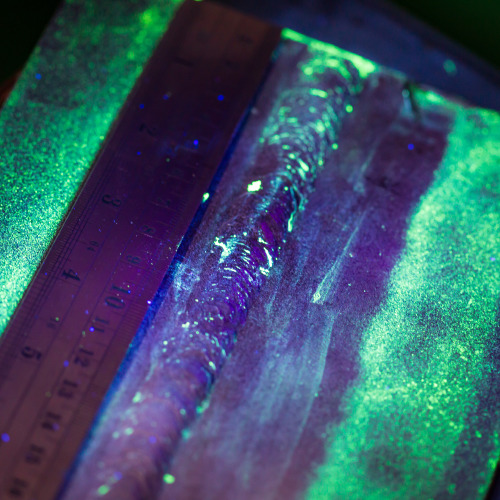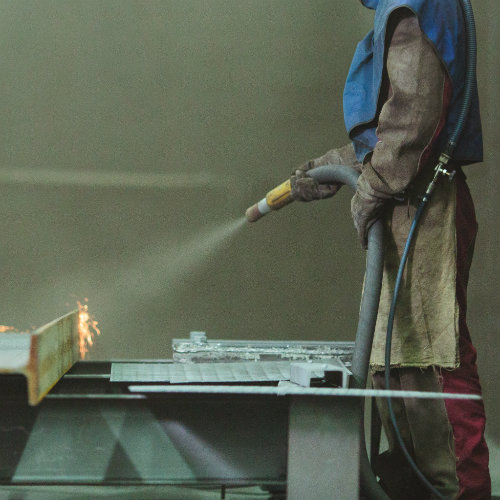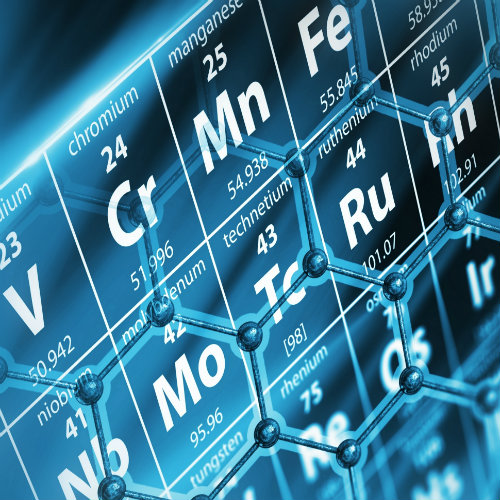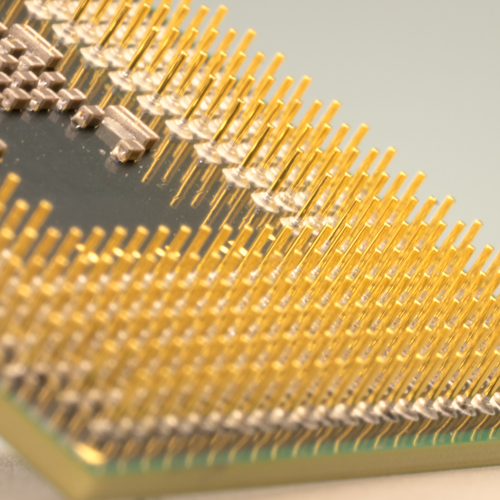Lab Testing Services: Ensuring Excellence In Aerospace And Beyond
Lab testing is an essential facet of product development and quality assurance in various industries, especially in high-stakes fields such as aerospace, defense, and medical equipment. Valence Surface Technologies, as a frontrunner in aerospace product finishing, provides state-of-the-art lab testing services that are instrumental in ensuring the integrity, safety, and performance of components under the most demanding conditions.
To learn more about our services and discuss your specific needs, contact us directly or request a quote today. Our experienced team is ready to assist you in achieving the highest standards of quality and precision in your aerospace and defense finishing projects.
The Role Of Lab Testing In The Industry
Lab testing involves sophisticated techniques that are crucial for evaluating the durability and efficacy of materials and components before they are brought to market. It is a proactive step that identifies potential issues, ensuring products are robust and fit for purpose. Industries depend on these analyses to optimize product design, forecast long-term performance, and prevent costly recalls.
For companies striving for excellence, lab testing is the foundation upon which safe and dependable products are built. In this way, lab testing is not just about assessing quality but also about fostering innovation and progress.
Why Lab Testing Is Important For Aerospace And Related Fields
In aerospace, components must operate flawlessly in extreme conditions, from high altitudes to the vacuum of space. Lab testing services play an indispensable role in this regard, serving as gatekeepers that enforce the rigorous standards of the sector. The use of lab testing ensures that materials and parts can endure not only mechanical stresses but also thermal and chemical exposures typical of their operational environment.
It ties into the life-saving aspect of aerospace – ensuring that every component contributes to the overall safety and success of missions. Therefore, lab testing isn’t simply a compliance measure; it’s a vital contributor to the sector’s pursuit of excellence and safety.
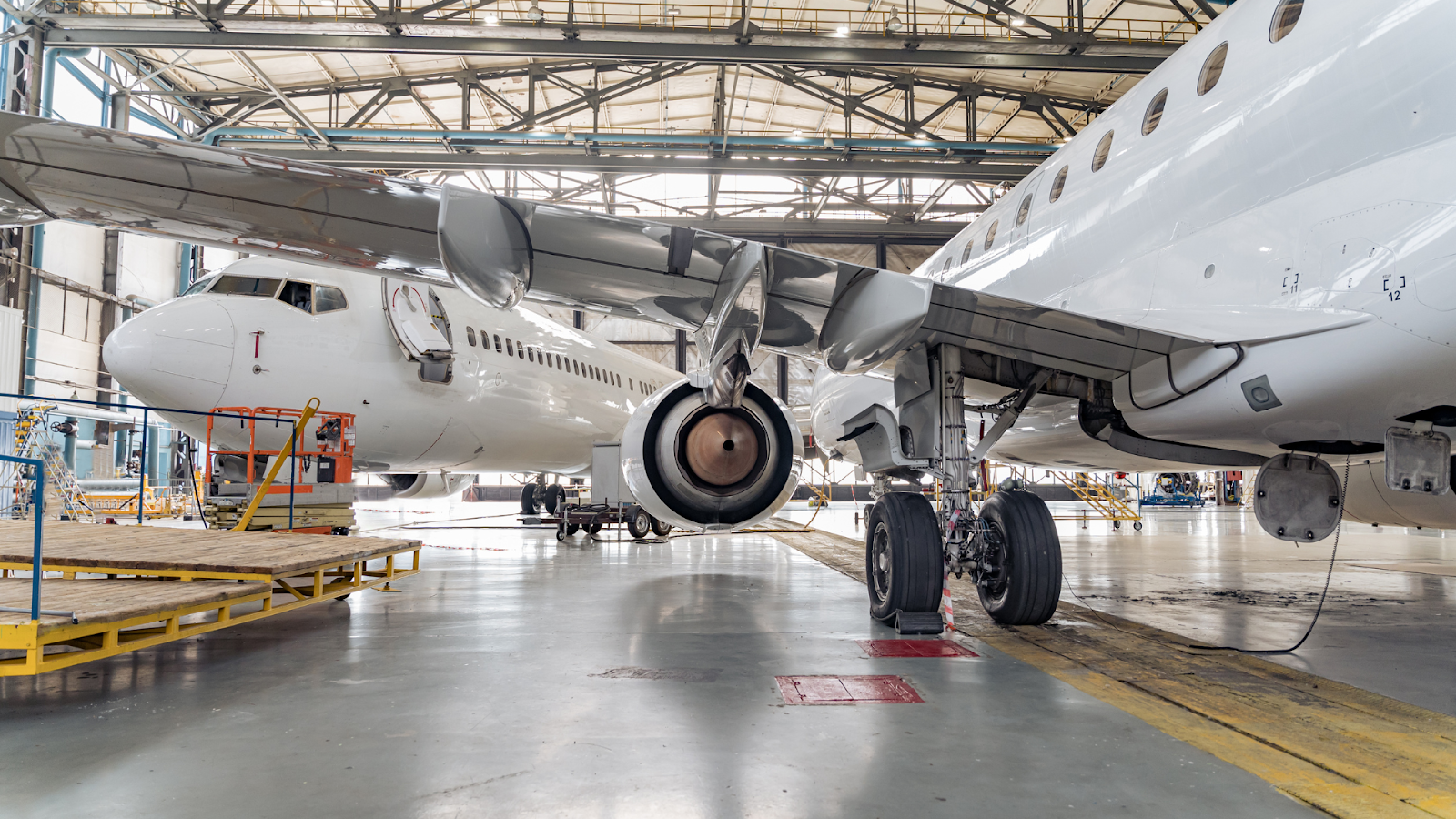
Global Standards For Lab Testing
ISO certifications, such as ISO/IEC 17025, set global benchmarks for lab testing, ensuring consistent, reliable, and accurate results, and recognizing labs for their technical competence and quality management. Similarly, labs must adhere to the stringent testing requirements of the Federal Aviation Administration (FAA) and the European Union Aviation Safety Agency (EASA) to certify components for aviation use.
For aerospace and defense labs, Nadcap accreditation is crucial, indicating compliance with industry-specific quality and technical standards. ASTM International’s consensus standards are key in guiding lab testing practices and ensuring product quality. Additionally, labs must meet the rigorous testing criteria of Military Specifications (MIL-SPEC) for defense-related equipment, ensuring products meet the demands of military applications.
Valence Surface Tech’s Lab Testing Capabilities
Valence Surface Technologies offers a range of lab testing capabilities Here’s a detailed look at capabilities:
Non-Destructive Testing (NDT)
Valence’s Non-Destructive Testing services form a critical component of their inspection capabilities, offering insights into material integrity without damaging the part. These NDT services, encompassing a variety of methods like ultrasonic, radiographic, and magnetic particle inspection, enable Valence to detect flaws that might otherwise go unnoticed until failure.
By integrating these services with pre- and post-NDT finishing, Valence delivers a comprehensive quality assurance package. This approach not only supports the immediate inspection needs but also enhances the longevity and reliability of the components they test. Valence’s NDT capabilities ensure that clients have access to a full spectrum of inspection services that uphold the highest industry standards.
Chemical Processing Analysis
Chemical processing is another cornerstone of Valence’s lab testing services, enabling the customization of material properties for specific applications. This processing extends the life of components, providing the necessary resistance to harsh environments encountered during operation.
By examining and treating a variety of alloys, Valence ensures that these materials meet the rigorous specifications demanded by today’s leading industries. Their thorough analysis confirms that each material’s inherent qualities are maximized, whether it entails corrosion resistance, durability, or thermal stability. Valence’s expertise in chemical processing analysis signifies a commitment to material excellence from the microscopic level.
Plating And Surface Finishing
The precision plating and surface finishing services offered by Valence are integral to safeguarding critical aerospace components against environmental wear. Their advanced plating techniques, including selective plating and precision masking, are tailored for specific client needs such as satellite and UAV components.
These processes not only enhance the aesthetic appeal of the parts but more importantly improve their performance and endurance. Valence’s innovative approach to plating sets industry benchmarks and demonstrates their leadership in complex surface technology solutions. Through meticulous attention to detail, Valence ensures its plating services reflect the same quality and precision that clients expect from their own products.
Painting And Spray Coatings
The painting and spray coatings at Valence represent more than just a final touch – they serve as a critical protective barrier against various forms of degradation. Valence’s array of paint and spray coatings undergo rigorous Nadcap and AS9100 approval processes, underscoring their commitment to quality.
Across the United States, their services provide industrial and aerospace clients with coatings that not only meet but exceed industry standards. The diversity in their coating options allows for a tailored approach, ensuring optimal protection for each unique application. With Valence, every spray coating is a meticulous application of science and art, designed to last.
Best Practices In Lab Testing Management
Best practices in lab testing management are crucial for ensuring the accuracy, efficiency, and reliability of laboratory operations. Here are some of the key best practices:
Ensuring Accurate Data Collection And Analysis
Accuracy in data collection and analysis is paramount in lab testing. Implementing best practices such as standard operating procedures, proper training, and validation of testing methods helps ensure data integrity and reliability.
Continuous Improvement Processes For Lab Testing
Adopting continuous improvement methodologies like Lean or Six Sigma can enhance the efficiency and effectiveness of lab testing processes. This leads to reduced errors, faster turnaround times, and an overall increase in lab productivity.
Ready to take your aerospace projects to the next level? Contact us today and experience the difference of working with the industry leader in aerospace surface finishing.
Lab Safety And Handling Of Hazardous Materials
Safety protocols for handling hazardous materials in lab environments protect personnel and prevent contamination. This encompasses proper storage, labeling, use of personal protective equipment, and training in emergency response procedures.
Data Security And Confidentiality In Test Results
Safeguarding test data and ensuring confidentiality are crucial, especially when proprietary or sensitive information is involved. Implementing robust cybersecurity measures and adhering to data privacy laws are vital for maintaining client trust.
Calibration And Maintenance Of Lab Equipment
Regular calibration and maintenance of lab equipment are essential for obtaining accurate and reliable test results. Keeping a detailed maintenance log and adhering to manufacturers’ specifications are part of the best practices in equipment management.
Advanced Techniques In Lab Testing
Advanced techniques in laboratory testing encompass a wide range of methods and technologies that are used to analyze and measure various aspects of materials, substances, or biological samples. Here’s an overview of some key advanced techniques in lab testing:
Metallurgical Analysis In Material Characterization
Metallurgical analysis is pivotal in determining material properties, such as composition, microstructure, and phase distribution. These insights are crucial for optimizing material performance and facilitating the design of robust components that can withstand the demanding conditions of their intended use.
Environmental Simulation And Testing
Environmental simulation testing subjects components to conditions they’ll face in actual service. This might include exposure to extreme temperatures, humidity, or corrosive environments. Such simulations ensure that parts can endure their operating environments without degradation of performance.
Cutting-Edge Microscopy And Imaging In Failure Analysis
Microscopy and high-resolution imaging techniques are essential for failure analysis, revealing microscopic flaws that could lead to component failure. Utilizing tools like scanning electron microscopes can uncover fractures, corrosion, and other failure mechanisms at the elemental level.
The Advancements In Stress And Fatigue Testing
Stress and fatigue testing have advanced to replicate operational stress cycles more accurately. These tests are vital for predicting the lifespan of components under cyclic loads and help in refining designs to ensure longevity and reliability.
Benefits Of Lab Testing
Lab testing services play a crucial role in various industries, especially in the aerospace sector, where precision, safety, and reliability are paramount. Here are some key benefits of lab testing services in this context:
Enhances product quality and reliability: Lab testing services provide valuable insights into the performance and durability of aerospace products, ensuring they meet stringent industry standards and customer expectations.
Reduces development risks and costs: By identifying potential defects and performance issues early in the development process, lab testing helps prevent costly design errors and production delays.
Improves safety and regulatory compliance: Lab testing plays a crucial role in demonstrating compliance with safety regulations and ensuring the safe operation of aerospace products.
Optimizes product performance: Lab testing data can be used to optimize product designs and performance, leading to increased fuel efficiency, reduced emissions, and improved overall product capabilities.
Promotes innovation and technological advancement: Lab testing provides a platform for exploring new materials, designs, and manufacturing processes, driving innovation in the aerospace industry.
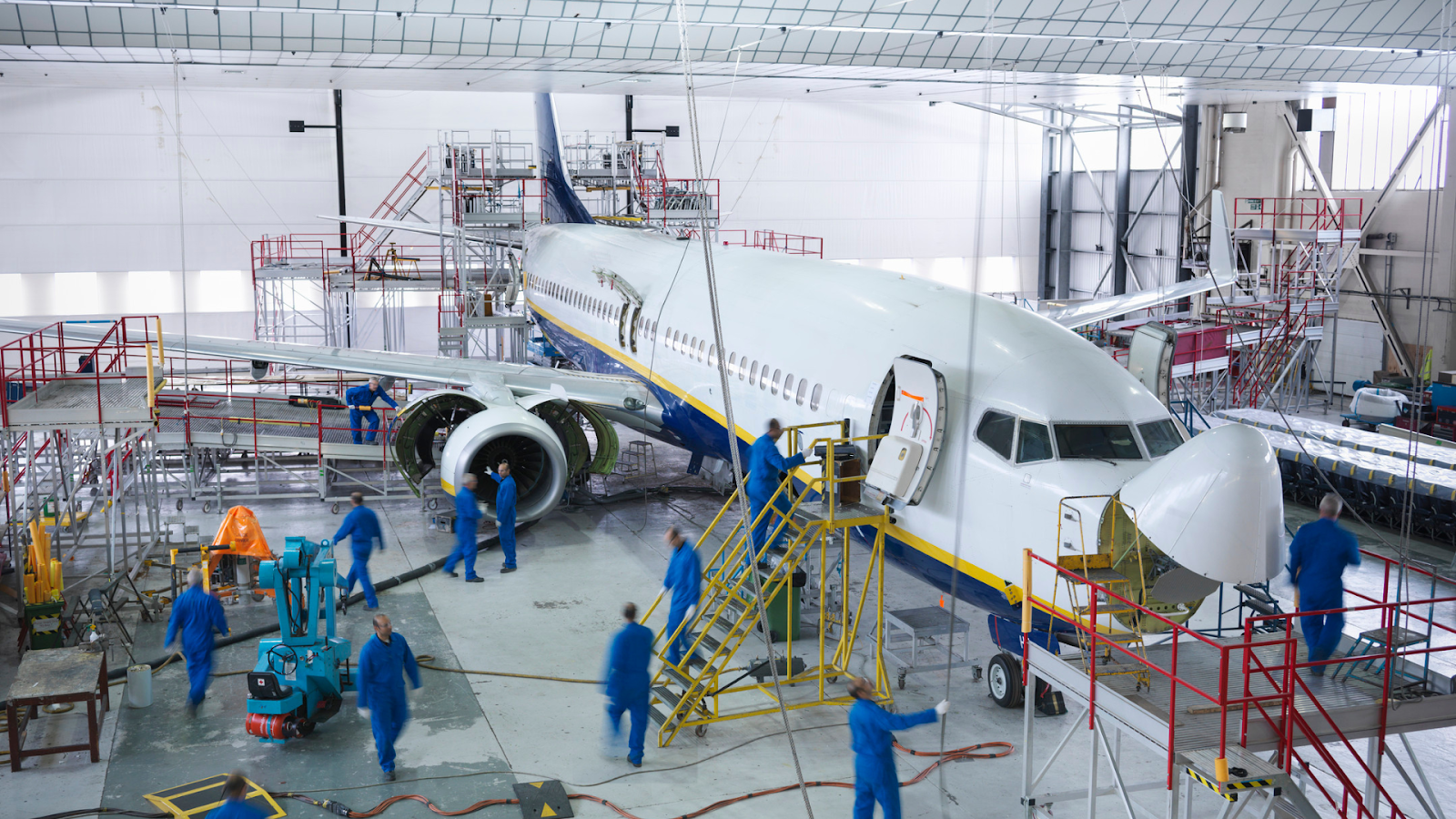
Final Thoughts On Lab Testing
Through comprehensive lab testing services, Valence Surface Tech plays an instrumental role in ensuring that the aerospace and related industries continue to evolve with products that are not only functional but exemplary in their class. Their thorough and sophisticated testing methodologies are more than just procedures; they represent a commitment to excellence that propels the entire sector forward.
With Valence’s support, clients are poised to achieve new heights, ensuring that the future of aerospace is not only imagined but realized with uncompromising quality.
At Valence Surface Technologies, we take pride in being the world’s largest independent aerospace surface finishing company. Our unique and fully integrated solution serves the aviation, defense, and space industries with unmatched expertise and precision.
Frequently Asked Questions About Lab Testing
What are lab testing services?
Lab testing services are a type of professional service that provides testing and analysis of materials, products, and processes. These services are used to ensure that products meet safety, quality, and performance standards. Lab testing services can be used for a variety of industries, including aerospace, automotive, medical, and food.
Why are lab testing services important?
Lab testing services are important for a number of reasons. They can help to:
- Ensure the safety and quality of products
- Identify and resolve product defects
- Improve product performance
- Reduce costs
- Meet regulatory requirements
What are the different types of lab testing services?
There are many different types of lab testing services available. Some of the most common types include:
- Chemical testing
- Physical testing
- Electrical testing
- Mechanical testing
- Environmental testing
- Non-destructive testing
How do I choose a lab testing service provider?
When choosing a lab testing service provider, it is important to consider a number of factors, including:
- The experience and expertise of the provider
- The provider’s accreditation and certifications
- The range of testing services offered
- The provider’s cost structure
- The provider’s location
How much do lab testing services cost?
The cost of lab testing services can vary depending on a number of factors, including the type of testing being performed, the complexity of the testing, and the volume of testing being done. However, as a general rule, lab testing services are relatively affordable.
What are the specific lab testing requirements for aerospace components and materials?
The specific lab testing requirements for aerospace components and materials vary depending on the specific application. However, some of the most common requirements include:
- Material testing to ensure that the materials meet the required strength, weight, and corrosion resistance requirements
- Functional testing to ensure that the components meet the required performance specifications
- Environmental testing to ensure that the components can withstand the extreme conditions of the aerospace environment
How do lab testing services help to ensure the safety and reliability of aerospace products?
Lab testing services play a critical role in ensuring the safety and reliability of aerospace products. By identifying and resolving product defects early in the development process, lab testing services can help to prevent accidents and save lives. Additionally, lab testing services can help to improve product performance and reduce costs.
What are some of the most common types of lab tests performed on aerospace components and materials?
Some of the most common types of lab tests performed on aerospace components and materials include:
- Tensile testing
- Compressive testing
- Fatigue testing
- Stress testing
- Corrosion testing
- Vibration testing
- Thermal testing
What are the latest innovations in lab testing technologies for the aerospace industry?
There are a number of exciting innovations in lab testing technologies that are being developed for the aerospace industry. These innovations include:
- Non-destructive testing (NDT) technologies that can be used to test components without damaging them
- Accelerated testing technologies that can be used to simulate the effects of years of use in a short period of time
- Advanced data analytics technologies that can be used to identify patterns and trends in test data
How can lab testing services help aerospace companies to reduce costs and improve efficiency?
Lab testing services can help aerospace companies to reduce costs and improve efficiency in a number of ways. By identifying and resolving product defects early in the development process, lab testing services can help to reduce the cost of rework and scrap. Additionally, lab testing services can help to improve product performance, which can lead to lower maintenance costs and longer product lifespans.
Sources:
- American Society for Testing and Materials (ASTM). (2023). ASTM International Standards. Retrieved from https://www.astm.org/
- American Association for Laboratory Accreditation (A2LA). (2023). A2LA Accreditation. Retrieved from https://a2la.org/
- International Laboratory Accreditation Cooperation (ILAC). (2023). ILAC Accreditation. Retrieved from https://ilac.org/
- National Aerospace and Space Administration (NASA). (2023). NASA Testing and Evaluation. Retrieved from https://www.nasa.gov/testing-and-analysis/
- Federal Aviation Administration (FAA). (2023). FAA Aircraft Certification. Retrieved from https://www.faa.gov/licenses_certificates
- Aerospace Industries Association (AIA). (2023). AIA Testing and Standards. Retrieved from https://www.aia-aerospace.org/
- National Institute of Standards and Technology (NIST). (2023). NIST Materials Testing. Retrieved from https://www.nist.gov/mml
Valence performs all of these services to the highest degree of care, with approvals for most prime, aerospace, and military specifications. Our products and services significantly enhance safety, long-term use, and consistency in the aerospace industry. View our specs here.
Other Services and Custom Solutions
Sub-Assembly
Valence offers simple assembly such as nutplates, fasteners, and bushing installations, and post assembly paint. Valence offers intermediate assembly operations prior to topcoat application.
Grinding
Grinding is an abrasive machining process that uses a grinding wheel to improve the surface finish of a part. This is often used as a finishing operation post plating.
Honing
Honing is an abrasive machining process that uses an abrasive stone to create a precision surface on a metal part.
Lab Testing
Valence provides a variety of lab testing procedures and types, including hardness and conductivity, corrosion, mechanical, metallurgical and much more. We also offer additional testing such as solderability, and purity.
Part Marking
Part marking is an identification process used to serialize a part for traceability purposes, methods include tags, laser etching, digital paint marking, ink identify and more. Valence offers a variety of different part marking types to suit your application.
Vendor Managed Inventory
Valence can partner with you to manage your entire outside processing spend, including inventory management and the ability to drop ship parts directly to your customer. We can work to manage your spend with us, or even other metal finishing suppliers.
Masking
Masking is the process of covering holes and surfaces before finishing so that the treatment only affects a designated area. Valence employees have extensive experience with complex masking using various materials such as tape, glue etc.
Clean & Etch
Titanium part manufacturing results in a surface that cannot bond, and does not accept bonding primers. An alkaline peroxide etching process, also known as clean and etch, leaves a surface texture well suited to adhesive bonding and the application of bonding primers.
Stress Relief Baking
Stress relief baking minimizes stresses caused by the machining and cutting of a part during manufacture. This reduces the likelihood of unwanted dimension changes in parts that often require tight tolerances.
